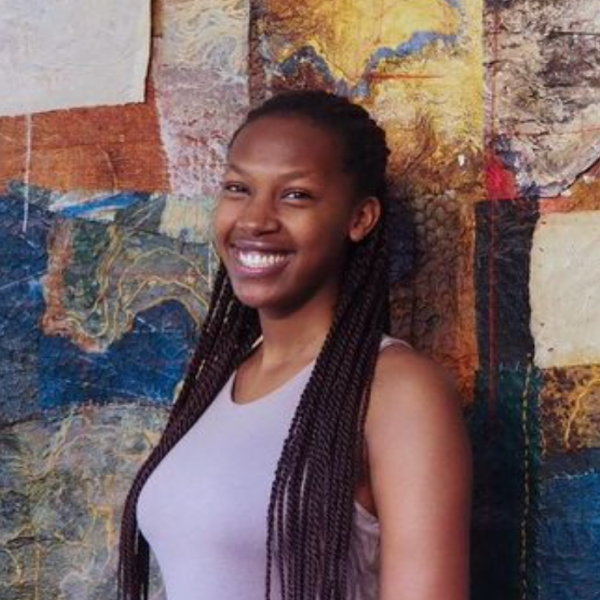Kampe Rushoka

This summer, I had the incredible opportunity to partner with Global Rights for Women (GRW) through the Chuck Green Fellowship. GRW is an international nonprofit based in Minneapolis, dedicated to advocating for and improving systemic responses to violence against women worldwide through a survivor-centered approach. During my 10-week fellowship, I divided my time between contributing to existing GRW projects and leading an independent initiative to increase their outreach in Africa.
One of the existing projects I significantly contributed to was a North Dakota Assessment Report. GRW was completing the second year of a needs assessment focusing on Indigenous survivors of violence—a notably underserved population. The assessment aimed to gather insights from advocates about the needs and services for Native survivors, particularly concerning issues with the Child Protection System (CPS), which often removed children from Native mothers experiencing domestic violence. In this project, I played a key role in modeling and visualizing data from two surveys: one on the needs assessment and another focusing on advocates’ perspectives on CPS.
Leveraging my skills from higher-level mathematics and statistics classes, I used coding to create sophisticated data visualizations using R Studio and other software. I also supported the project with statistical and data analysis. These visualizations were incorporated into the final report sent to the North Dakota state coalition on sexual and domestic violence (CAWS) , providing deeper analytical insights that enhanced the understanding of the survey findings.
I also worked on my independent project to increase GRW’s outreach to the African continent. Recognizing the need for GRW to understand the cultural and historical context of African feminist activism, I created a guidebook on effective collaboration with African feminist activists. In the first two weeks, I conducted extensive research—over 200 pages—on African feminism, its history, core values such as collectivism and negotiation, scholarly focus on rural women’s needs, and the dynamics between Western and African activists in the current transnational feminist networks.
Building on this research, I formulated interview questions and conducted seven interviews with feminists from across the continent, including Rwanda, Tanzania, and Morocco. These conversations revealed key themes in Western-African feminist collaborations, which I used to author a 20-page document titled “Key Considerations and Recommendations for Western Feminists on Effective Collaboration with African Counterparts.” Some of the key themes in the document include: the need for cultural awareness and preparation by Western feminists, fundamental differences in priorities and approaches between Western and African feminism, exploitative power dynamics leading to a lack of agency for African feminists, and unrealistic reporting requirements imposed by Western organizations. The document aimed to be a resource not only for GRW but also for other Western feminists engaging in international collaborations. I was delighted that several of the African activists I interviewed expressed interest in sharing this guide with their Western donors and partners.
Additionally, I developed a database of over 50 potential African activists and NGOs for GRW to collaborate with in the future. This resource includes contact information, key focus areas and summaries of the work of various NGOs cooperatives, and coalitions all across the continent working to eradicate violence against women. In an effort to connect GRW more effectively with the Global South, I believed it was essential to have a repertoire of potential collaborators. Some of these connections have already led to discussions about potential collaborations.
Finally, leveraging the connections I made, I will be hosting a podcast episode on GRW’s podcast platform, “Valiant Voices,” called “Amplifying African Feminist Voices: Inspirations and Innovations in Combating GBV,” featuring some of the inspiring African feminists I connected with. This episode will highlight their work and contributions to eradicating violence against women globally.
My Chuck Green Fellowship experience was truly life-changing. Working alongside inspiring activists both in Minneapolis and across the globe reaffirmed my commitment to pursuing a career in gender activism. I believe it is the independent nature of the Chuck Green Fellowship that allowed me to leverage my unique skills and interests in non-traditional ways that benefited both my partner, GRW, and myself. The profound conversations I had—both formal and informal—deeply impacted me, shedding light on the struggles, needs, and strengths of local African activists tirelessly working to protect women and prevent violence against them.